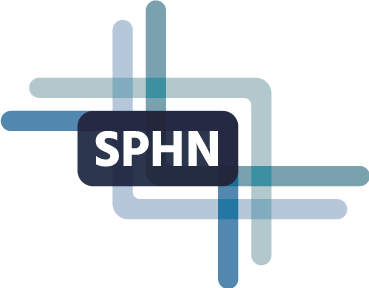At the Data for Health symposium, SPHN and PHRT celebrated the achievements from the past eight years. With over 450 participants, the symposium was a great success.
Data helps improve patient treatment. The SPHN and PHRT initiatives have laid the groundwork for hospitals to share health data at scale for multi-center studies. At the Data for Health symposium, the successes and the collaboration of all actors involved took center stage.
The symposium gathered the perspectives of all stakeholders, including patients’ expectations, industry leaders' insights, researchers' needs, and politicians' views. A key highlight was the joint appearance of State Secretary Martina Hirayama from SERI and FOPH Director Anne Lévy, underlining that research and care must go hand in hand.
«What are you most proud of?» moderator Karin Frei asked Urs Frey, Chair of the SPHN National Steering Board, and Bernd Wollscheid, Chair of the PHRT Executive Committee. Both agreed: «Of having built this community.» Over 1,000 researchers and clinicians are now involved in this network, Wollscheid noted.
Key takeaways from the panels and keynotes included:
How to bring data out of the silos?
Bridging the worlds of hospitals and research is complex, with many technical and regulatory hurdles. To overcome them, stakeholders need to come together and engage in conversation and collaboration.
- Data interoperability can be improved if the quality of data capture at the source is enhanced.
- Data sharing would be easier if institutional, cantonal, and federal legal frameworks were harmonized better.
Shared benefits of research, healthcare, and quality
- It's in Switzerland’s DNA that multiple institutions and bodies share responsibility when undertaking such a complex endeavor.
- SPHN has laid a solid foundation that is beneficial for initiatives like DigiSanté, which also requires experience and coordination among many actors.
Patients' expectations in personalized health
- Patients are the owners of their health data. Their consent to further using their data should be respected when hospitals and ethics boards decide on research projects.
- Research and health care would benefit from moving beyond a data protection-oriented culture toward one that values the opportunities of data sharing.
So, overall, how far have we come with personalized health in Switzerland? According to Thos Geiger, Managing Director of SPHN, the conversation has changed profoundly over the past eight years: «At the start of the initiative, people questioned why and if we should share health data. Today, everyone focuses on how this can be done in the most efficient and responsible way». This may be the most important achievement advancing personalized health in Switzerland.






